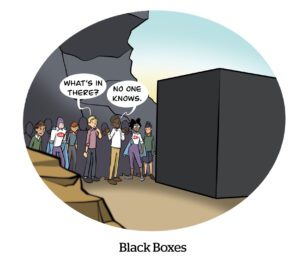 “The Sell Sider” is a column written for the sell side of the digital media community.
“The Sell Sider” is a column written for the sell side of the digital media community.
Today’s column is written by Chris Cummings, CEO at Curiosity Media.
The industry is abuzz about Google’s recent announcement that it will integrate competing ad exchanges into DoubleClick for Publishers’ (DFP) dynamic allocation.
A faster, more scalable alternative to header bidding may finally be on the horizon, and with the full force of Google behind the effort we may be witnessing a tectonic shift in the industry dynamics of digital advertising.
Two trends are tearing down old industry norms. First, on the buy side, programmatic advertising is replacing traditional media buys. P&G recently reported three to five times the ROI from programmatic campaigns as compared to traditional campaigns. With those type of results, it’s only a matter of time before all digital buys are programmatic.
Second, on the sell side, impression-by-impression auctions, which have been enabled by header bidding, are posting remarkable revenue gains for publishers, exceeding 50% for some publishers. Publishers are flocking to set up header bidding because the returns are phenomenal.
On both sides of the marketplace, the buying and selling of advertising on an impression-by-impression basis represents a permanent, long-term shift in the way the industry operates. Traditional networks will die. And the traditional guaranteed buys will die, too. Both will be replaced by programmatic buying and selling, some private and some open. But essentially everything will become programmatic.
The announcement from Google is such a big deal because Google is laying out a strategy to control the programmatic market. The existing market penetration of Google on the sell side and buy side runs deep, as Google has already bought and integrated DFP, Google AdExchange (AdX) and Bid Manager. Pulling in the demand from competing exchanges will create a meta exchange so large and powerful that it’s hard to imagine how anything could rival it.
The networks effects of this meta exchange are staggering, as Google will have integrated with the vast majority of the highly dispersed sell side and buy side of the marketplace. And the economies of scale are equally awesome, as Google will spread its heavy, fixed investment in engineering and data centers out across the largest base of customers and buyers in the industry.
These type of network effects and economies of scale are two of the most classic underpinnings of a monopoly. Could Google’s announcement foreshadow the creation of a new monopoly over programmatic advertising?
Monopolies can be benign when they are born. They are low-cost, compete with alternatives and innovate. But over time, the fees climb, fair competition is replaced with bundling and innovation slows. Think about your cable company: high fees, unwanted bundles and lackluster innovation. Monopolies are bad for an industry over time.
In the case of Google’s meta exchange, initially, it will likely have reasonable fees, allow other supply-side platforms (SSPs) to compete and the server-side integrations will represent a significant innovation for the industry. But what will the programmatic world look like in five years?
Critical questions remain that are likely impossible to answer. Will the fees still be low in several years’ time? Will the playing field still be fair after all the SSP integrations are complete?
It’s hard to know, but what is most concerning is that these decisions will be left in the hands of a company that is accountable first and foremost to its own shareholders. And it’s not clear the buyers and sellers on the meta exchange will have an alternative if they don’t like the decisions. The best way to ensure the answers to these questions are reasonable is to ensure the existence of real, vibrant competition.
Industry dynamics are a complicated topic, loaded with uncertainty. But in the near term there is one simple, clear request that the SSPs and publishers can make to Google so that alternatives have a chance to emerge: Open up AdX to other server-side meta exchanges.
Without AdX, other server-side meta exchanges will be at a severe handicap. And once many of the major SSPs have signed on to Google’s proprietary meta exchange, the barriers to entry may already be too great to overcome.
As Google asks other exchanges to integrate with its meta exchange, as an industry let’s make the server-side integration mechanisms between exchanges open and interoperable. With Google pushing the server-side agenda forward, let’s also ask that Google lead the way by making AdX available to other meta exchanges through this open standard.
The industry dynamics are about to shift, and the rules of the game are taking shape. Nothing spurs innovation, lower fees and a level playing field like having viable alternatives. Let’s ensure that the new rules of the game allow for competition.
Follow Chris Cummings (@christopherdc) and AdExchanger (@adexchanger) on Twitter.












